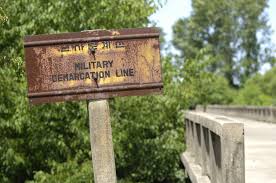 This week we celebrate an international day that I bet you’ve never heard of. Little-known and clumsily named, its message is nevertheless vitally important. Next Thursday is the International Day for Preventing the Exploitation of the Environment in War and Armed Conflict, so declared by the UN General Assembly in 2001. Mankind always counts its war casualties in human terms – dead and wounded soldiers, civilian deaths, destroyed cities and livelihoods. The natural world remains the unpublicised victim of war. Waterways are polluted, forests destroyed, soils poisoned, and wild animals are killed. On 6th November the world acknowledges damage done to the environment through war, and looks for ways to avoid future harm. This is an issue I intend to explore in my next book.
This week we celebrate an international day that I bet you’ve never heard of. Little-known and clumsily named, its message is nevertheless vitally important. Next Thursday is the International Day for Preventing the Exploitation of the Environment in War and Armed Conflict, so declared by the UN General Assembly in 2001. Mankind always counts its war casualties in human terms – dead and wounded soldiers, civilian deaths, destroyed cities and livelihoods. The natural world remains the unpublicised victim of war. Waterways are polluted, forests destroyed, soils poisoned, and wild animals are killed. On 6th November the world acknowledges damage done to the environment through war, and looks for ways to avoid future harm. This is an issue I intend to explore in my next book.
Since the Romans sowed salt on Carthaginian fields during the Third Punic War, conflicts have damaged the earth, both intentionally and as a reckless side-effect. In Iraq, Saddam Hussein’s draining of marshlands in the Euphrates/Tigris Delta provides a classic example of deliberately targeting ecosystems to achieve political and military ends. Decades of war have devastated the forests and wetlands of  Afghanistan and Pakistan. Bombing and deforestation threatens an important migration path for birds in this region. The number now flying this route has dropped by eighty-five percent in recent years. Foreign aid workers helped drive snow leopards to the brink of extinction by paying thousand of dollars for pelts. Impoverished and refugee Afghans were more willing to break bans on hunting protected species. Once Sierra Leone was thick with ninety percent rainforest. Following conflict the country now has less than four percent forest cover. Decades of civil war threaten gorillas in the Congo. The depressing list goes on and on …
Afghanistan and Pakistan. Bombing and deforestation threatens an important migration path for birds in this region. The number now flying this route has dropped by eighty-five percent in recent years. Foreign aid workers helped drive snow leopards to the brink of extinction by paying thousand of dollars for pelts. Impoverished and refugee Afghans were more willing to break bans on hunting protected species. Once Sierra Leone was thick with ninety percent rainforest. Following conflict the country now has less than four percent forest cover. Decades of civil war threaten gorillas in the Congo. The depressing list goes on and on …
On rare occasions war has had positive effects. One of Asia’s safest, most diverse habitats for endangered species is a narrow, land-mined strip of jungle between two bitterly opposed nations. The Korean Demilitarized Zone (DMZ) has, by chance, helped safeguard  moon bears, red-crowned cranes, and black-faced spoonbills from extinction. South Korea wants the United Nations to recognize the DMZ’s role in wildlife conservation by making it a World Heritage site – getting the international community to protect and expand the wilderness area. “No other place in Korea resembles what it looked like before the war,” says Lee Ki-sup, an ecologist from South Korea. Perversely, peace would be the worst possible outcome for this accidental sanctuary.
moon bears, red-crowned cranes, and black-faced spoonbills from extinction. South Korea wants the United Nations to recognize the DMZ’s role in wildlife conservation by making it a World Heritage site – getting the international community to protect and expand the wilderness area. “No other place in Korea resembles what it looked like before the war,” says Lee Ki-sup, an ecologist from South Korea. Perversely, peace would be the worst possible outcome for this accidental sanctuary.
 There is hope. In recent years, an increasing number of governments have asked the UN to conduct post-war environmental assessments. A team is currently examining the environmental impact of the conflict in Lebanon, and others are working closely with the governments of Sudan and Iraq. Rules, such as the Geneva Conventions, govern the conduct of war. However the environmental consequences are overlooked. It’s high time that we review international agreements related to war and armed conflict to ensure they also cover deliberate and reckless damage to the environment.
There is hope. In recent years, an increasing number of governments have asked the UN to conduct post-war environmental assessments. A team is currently examining the environmental impact of the conflict in Lebanon, and others are working closely with the governments of Sudan and Iraq. Rules, such as the Geneva Conventions, govern the conduct of war. However the environmental consequences are overlooked. It’s high time that we review international agreements related to war and armed conflict to ensure they also cover deliberate and reckless damage to the environment. 

Such a powerful and passionate post, Jenny! Thank you for highlighting this critical aspect of environmental concern. I look forward even more keenly to your next novel, knowing these will be highlighted themes,
Thanks so much Desney. It’s easy to feel helpless, but we do what we can … 🙂